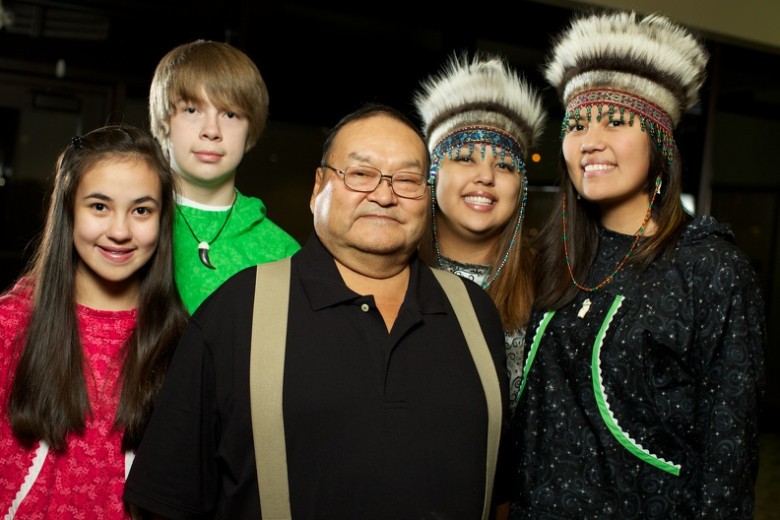The ‘Fiber Study’ looks to reduce the risk of colon cancer among Alaska Native people
March 11, 2019
Alaska Native people have one of the highest rates of colon cancer in the world. To help improve the health of our families and future generations, ANTHC and the University of Pittsburgh are conducting a research study. The researchers will look at the effect fiber (found in fruits and vegetables) in the diet has on colon cancer risk.
Foods we eat may affect our risk for colon cancer. Studies suggest that when people eat more fiber it can reduce their risk of getting colon cancer. We need to study this more to be sure and get good information to share with our patients. If you are interested in taking part, contact your primary care provider today to schedule a colonoscopy and learn more about the study.
What is this study trying to find?
We are doing this study to find out if increasing the amount of fiber people eat can protect against getting colon cancer.
Who can participate in the study?
Healthy Alaska Native people who are 40 to 75 years old can take part.
Who cannot participate in the study?
Some people should not take part in this study. This includes people who are very thin or obese. People who have certain medical problems like diabetes, bleeding disorders or previous problems with the colon. People who have recently taken antibiotics or steroids should not participate in the study.
What do I have to do if I am eligible for the study?
We are looking for people who are going to have a screening colonoscopy to look for colon cancer. During the colonoscopy, we will collect samples of your colon cells. You will answer survey questions and have some additional clinical tests and measurements. You will start a powder supplement mixed with water eight weeks after your colonoscopy. We want to see if it is the fiber that makes colon cells healthier. Some participants will get a fiber powder and others will get a non-fiber powder. These are all safe and natural products. You will take the powder every day for 28 days. You will then have a flexible sigmoidoscopy that does not go as far into the colon as the colonoscopy. We will collect more samples to compare to the ones we collected at your colonoscopy. The cells will tell us the effect fiber has had on the lining of the colon.
How long will this study last?
Each participant will be in the study for three to four months. We hope to complete all testing within five years.
When will we know the results of the study?
We want to recruit 60 volunteers to complete our study. We will analyze the information and publish the results after 60 people complete. Participant names will not appear in any reports about the study.
What are the recommended ages for Alaska Native people to get a colonoscopy?
Recently the recommended age for colon cancer screening was lowered to 40 for both Alaska Native men and women. It was lowered from 50 to 40 for Alaska Native people because we see high rates of colon cancer among our people at quite a young age.
Steps to schedule colon cancer screening at ANMC:
1. Make an appointment with your primary care provider for colon cancer screening.
a. For SCF patients, call your primary care provider or 907-729-3300
2. When you see your primary care provider, ask for a referral to the ANMC Colorectal Cancer (CRC) Screening Clinic. Let your provider know you want to have a colonoscopy.
3. Your provider will set up the referral for you.
4. The CRC Screening Clinic will contact you to schedule your appointment.
Alternatively, you may call the ANMC CRC Screening Clinic for assistance at 907-729-4444. The clinic will work with you and your provider to schedule the appropriate referral.
For more information about the CRC Screening Clinic at ANMC, visit their webpage here.
For more information about cancer prevention and screening at Southcentral Foundation, visit their website here.
Related story: March is Colorectal Cancer Awareness Month: Demystifying the colonoscopy
